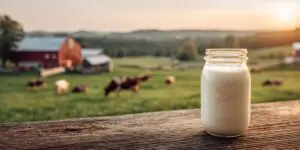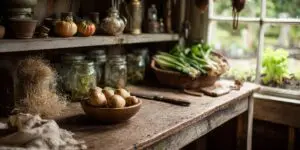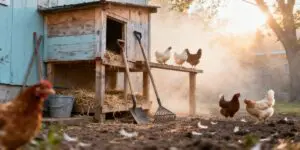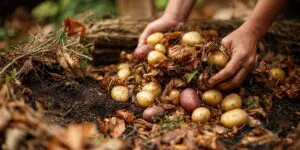Beer has a lot more uses than just as a refresher during a long gardening session – I have recently been using it in my garden as well!
Alongside being tasty, beer has a number of surprisingly helpful properties that make it a potentially key ingredient in the garden: from making better fertilizer to actively fighting garden pests, I feel safe in the knowledge that there is a justifiable, practical reason to buy 2 crates of beer this weekend – it’s for the garden!
What Is Beer Made Of ?
Before going into how beer is so useful in the garden, it can be helpful to properly understand what beer is actually made from.
I actually brew my own beer (my recent brew is an English bitter that I made with way too much chocolate malt) so I always have about 20 lbs of extra brewing ingredients lying around.
Beer is basically a simple mixture of water, grains, and yeast.
Taken as their base ingredients, these three ingredients are already useful in the context of gardening: grains could grow new plants, water can… water your plants, and yeast is a helpful nutrient. However, it is the interplay between these ingredients, and the chemical reactions that occur after fermentation, that makes these ingredients even more useful and practical for your garden.
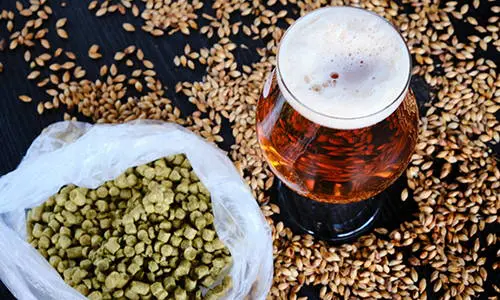
How Beer Can Affect Your Compost
Firstly, the most obvious way that beer is helpful in a garden is as a compost ingredient. Beer is basically nothing more than liquid infused with sugars and proteins from grains, and these sugars and proteins are incredibly useful for the development of healthy compost.
You can simply pour beer directly into your compost to help give a fledgling compost pile a bit more life.
However, if you are a home brewer like I am, you can go one step further; use your waste ingredients as the principal ingredient of compost!
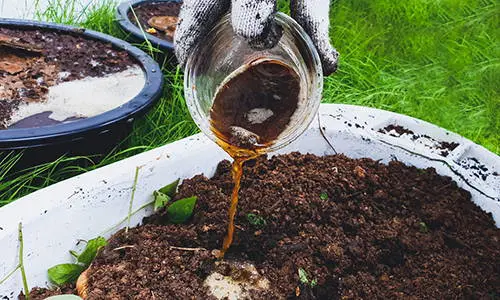
As part of making beer, grains are steeped in hot water to help leech out their sugars into the water. After enough time has passed, the grains have given up most of their sugars and are now nothing more than leftover starch, fiber, and some trace proteins.
Most people usually toss this or feed it to their chickens, but you can instead pour it directly over your compost pile and work it in. The grains will act like brown matter, in that they will add plenty of carbohydrates to the mixture, while also decomposing and providing the whole thing with a ton of nutrients.
So while you can certainly just pour some leftover beer onto your compost, being able to use all of your grains is even better.
One thing to note if you are brewing your own beer is that you definitely shouldn’t add any hops to your compost pile. Hops are actually super poisonous to all kinds of animals, especially cats, and dogs, so definitely don’t put any hops onto your pile.
Related: How To Make A Barrel Of Beer At Home
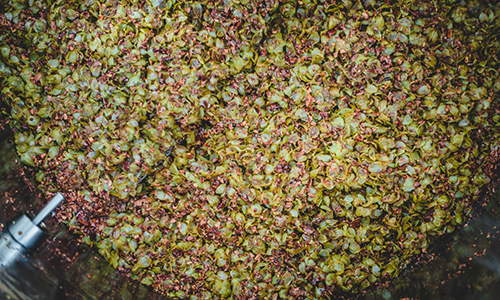
How To Use Beer As a Pesticide For Wasps
A much less frequently utilized benefit of beer is its potential as a surprisingly good pesticide.
Now, most people on hearing the word “pesticide” would immediately jump to the anti-pesticide, natural-only arguments, and for the most part, they would probably be right. However, when I talk about using beer as a pesticide, it is not about pouring beer all over your plants to somehow avoid bugs that might eat your cabbages, but instead about killing that one pest that we all hate: wasps.
While wasps are vitally important if you are planning on growing something like figs, and they do also eat a few species of caterpillar that might prey on your garden, for the most part, wasps are nothing more than a pest.
This is especially true if you happen to keep bees, as desperate, hungry wasps can totally overwhelm an otherwise thriving beehive if you let the wasps get out of hand. However, just like us, wasps love beer! They don’t mind the alcohol, and they actively enjoy the combination of protein and sugars.
To use beer as a pesticide for wasps, simply cut off the top 15% or so of one of those big plastic bottles. Invert the cut-off top and place it into the lower part of the bottle, and then pour a bit of leftover beer into the plastic bottle.
While the wasps will know precisely how to get into the bottle, they won’t be able to figure out how to get out through the smaller hole you have left. This will result in a buildup of wasps in the bottle, and you can just throw them away at the end of the day, or even put them on top of your compost!
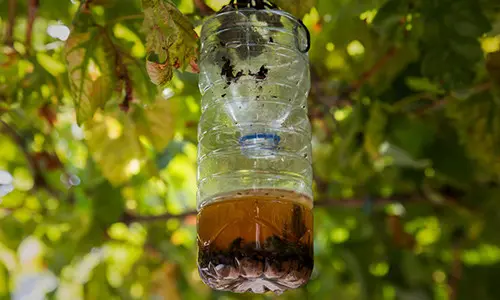
How To Use Beer As a Pesticide For Mosquitoes
In much the same way that you can use beer as a pesticide against wasps, you can also do the same for mosquitoes.
Mosquitoes are useful only in that they are a food source for birds – other than that, they are just a nuisance. The bloodsucking critters are primarily drawn to the release of carbon dioxide, which is how they evolved to seek out their prey to suck their blood.
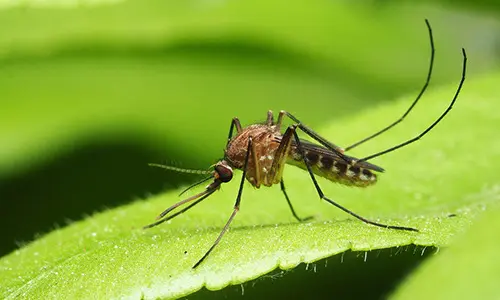
Beer, of course, is constantly releasing carbon dioxide, making it a great way to make an effective trap!
Simply the same trap used for catching wasps can be used to catch and remove mosquitoes. Keep in mind, though, that eventually, the CO2 will run out, so to keep your trap running in the long term, add a little bit of yeast and a good spoonful of sugar to your beer trap. This will gradually release more and more CO2, thanks to the yeast eating the sugar and processing it into CO2.
So, while it might seem a little bit gross to need to throw away a big cola bottle filled with mosquitoes and wasps, it can really help to clear out your garden.
As I’m a home brewer, I always have a bit of leftover beer and yeast, making me enemy No.1 for every wasp and mosquito within 5 miles of my garden, so long as I remember to put traps out.
You may also like:
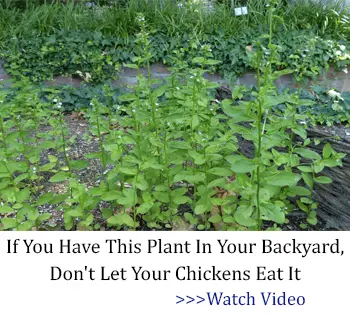 How To Build a Solar Heater from BEER cans for FREE
How To Build a Solar Heater from BEER cans for FREE
Easy to Build Root Cellar in Your Own Back Yard (Video)
The Ultimate Guide To Composting
These 9 Common Garden Plants Are Toxic To Chickens
Mosquito and Fly Repellent Plants You Need To Grow For Summer










